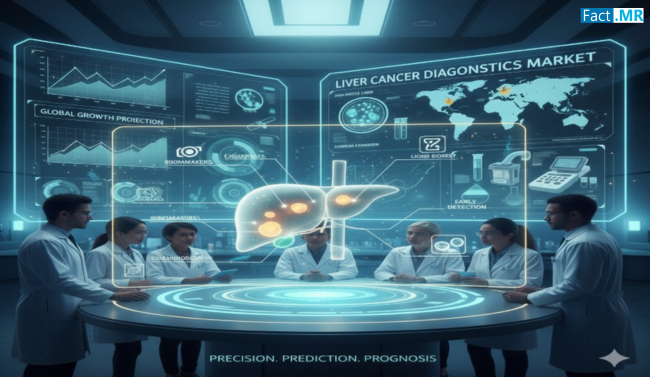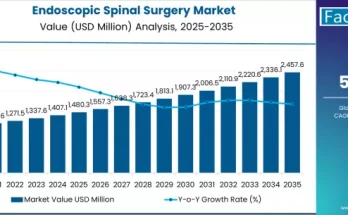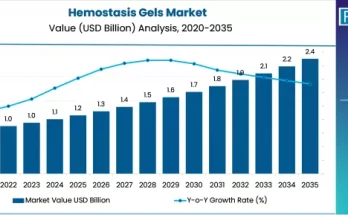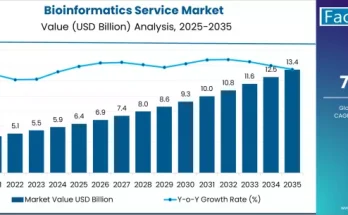Liver cancer continues to be a pressing global health challenge, with rising incidence linked to factors such as chronic hepatitis infections, alcohol consumption, obesity, and lifestyle-related liver diseases. Early detection is often the most critical factor in improving survival rates and treatment outcomes. This has made the liver cancer diagnostics market increasingly important in shaping the future of oncology care.
Diagnostics for liver cancer involve a range of advanced methods, from imaging technologies to biomarker-based blood tests and biopsies. Growing awareness about the benefits of early diagnosis, coupled with advances in medical technologies, is pushing healthcare systems worldwide to invest in improved diagnostic solutions. The liver cancer diagnostics market is not only supporting early detection but also contributing to the personalization of treatment strategies.
Market Overview
The liver cancer diagnostics market encompasses a wide array of technologies and tools aimed at detecting cancer at an early stage, monitoring disease progression, and guiding treatment decisions. Traditional diagnostic methods such as ultrasound, MRI, and CT scans are being complemented by next-generation technologies, including liquid biopsies, molecular diagnostics, and AI-powered imaging platforms.
The market is being shaped by a dual focus: improving the accuracy and speed of diagnosis, while ensuring accessibility to patients across diverse healthcare settings. As a result, diagnostics are expanding from specialized cancer centers into primary healthcare and community hospitals. Another key trend is the integration of advanced biomarkers, which provide clinicians with deeper insights into tumor biology and patient-specific disease progression.
Regional Insights
North America
North America represents one of the leading regions in liver cancer diagnostics, driven by strong investments in healthcare infrastructure, cutting-edge research facilities, and widespread adoption of advanced technologies. High awareness levels among healthcare providers and patients further contribute to early diagnosis rates. Regulatory bodies in this region are also encouraging innovation by supporting approvals of new diagnostic tools.
Europe
Europe is another major contributor, with countries across the region emphasizing early cancer detection through national screening programs and awareness campaigns. Stringent healthcare regulations ensure high standards of diagnostic accuracy, while the region also shows a growing preference for non-invasive and personalized diagnostic solutions. Research collaborations between universities, hospitals, and biotechnology companies are further driving innovation.
Asia-Pacific
The Asia-Pacific region is emerging as a significant growth area for liver cancer diagnostics. The high prevalence of hepatitis infections and lifestyle-related liver diseases in countries such as China and India underscores the urgent need for improved diagnostic solutions. Governments are making concerted efforts to expand healthcare access, and local players are increasingly collaborating with global firms to bring advanced technologies to this market.
Latin America
Latin America is gradually advancing in the liver cancer diagnostics space, with growing awareness and increasing investments in healthcare systems. Although challenges such as uneven access to modern diagnostic facilities exist, collaborations with international healthcare providers are helping to bridge gaps. Awareness campaigns are encouraging earlier detection and diagnosis, particularly in urban areas.
Middle East & Africa
The Middle East & Africa region is at an early stage of development in liver cancer diagnostics but is showing strong potential. Investments in modern healthcare facilities, combined with international partnerships, are improving diagnostic capabilities. Awareness programs are gradually reducing stigma around cancer screenings and encouraging more patients to seek timely medical attention.
Key Trends & Forecast
- Integration of Artificial Intelligence in Imaging
AI-powered imaging systems are revolutionizing how liver cancer is diagnosed. Algorithms can detect tumors with high precision, even at early stages, supporting radiologists in reducing errors and improving efficiency. - Growth of Biomarker-Based Diagnostics
Biomarkers are playing an increasingly critical role in liver cancer detection. Blood-based tests analyzing proteins, DNA mutations, or other molecular markers offer a less invasive and more accurate way to identify cancer progression and recurrence. - Rising Demand for Non-Invasive Techniques
Patient demand for non-invasive diagnostic tools is growing. Technologies like liquid biopsies are gaining traction because they eliminate the need for surgical tissue biopsies while still delivering reliable results. - Collaborations Between Pharma and Diagnostics Companies
Pharmaceutical companies are partnering with diagnostics firms to develop companion diagnostics, which help identify patients who are most likely to benefit from specific treatments. This strengthens the link between diagnostics and precision medicine. - Adoption of Telehealth and Digital Pathology
The digital transformation of healthcare is also influencing liver cancer diagnostics. Telehealth platforms and digital pathology services allow for remote consultations and sharing of diagnostic data, expanding access to expert opinions across regions. - Personalized Medicine Approaches
The market is aligning with the larger trend of personalized medicine, where diagnostic results guide individualized treatment plans. This ensures better outcomes and reduces unnecessary treatments.
Applications & End-Use Outlook
Imaging Techniques
Imaging technologies such as ultrasound, CT, and MRI scans remain foundational in liver cancer diagnostics. Recent innovations are making these methods more precise, with AI-based image analysis improving accuracy and speed.
Biopsy and Histopathology
Biopsies continue to be a gold standard for confirming liver cancer diagnoses. Histopathological analysis of tissue samples provides definitive insights into cancer staging, though innovations are working to reduce the invasiveness of the procedure.
Biomarker Testing
Blood-based biomarker testing is rapidly advancing as a preferred diagnostic method. These tests provide valuable insights into liver function, genetic mutations, and tumor progression. They are expected to play a larger role in routine cancer screenings.
Molecular Diagnostics
Molecular diagnostic methods, including next-generation sequencing, enable a deeper understanding of genetic alterations linked to liver cancer. These technologies are increasingly used to guide treatment decisions and monitor therapeutic responses.
End-Use Sectors
- Hospitals and Specialty Clinics: Remain the primary users of liver cancer diagnostic tools, given the need for advanced imaging and laboratory support.
- Diagnostic Laboratories: Offer comprehensive testing services and play a key role in expanding access to molecular and biomarker-based diagnostics.
- Research Institutions: Actively involved in developing next-generation diagnostic solutions and advancing personalized medicine.
Conclusion
The liver cancer diagnostics market is poised to play a pivotal role in transforming cancer care over the coming years. As awareness about early detection grows, healthcare providers are increasingly adopting advanced tools to identify the disease at its earliest stages. With innovations such as AI-powered imaging, liquid biopsies, and biomarker testing, diagnostics are becoming more precise, less invasive, and more accessible.
Regional disparities in access remain a challenge, but international collaborations, government initiatives, and the integration of digital healthcare are steadily addressing these issues. Ultimately, the evolution of the liver cancer diagnostics market underscores a broader shift in global healthcare: a move toward early detection, personalization, and patient empowerment.
By embracing these advancements, the market is not only helping extend lives but also shaping a future where liver cancer can be diagnosed faster, treated more effectively, and managed with greater confidence.



